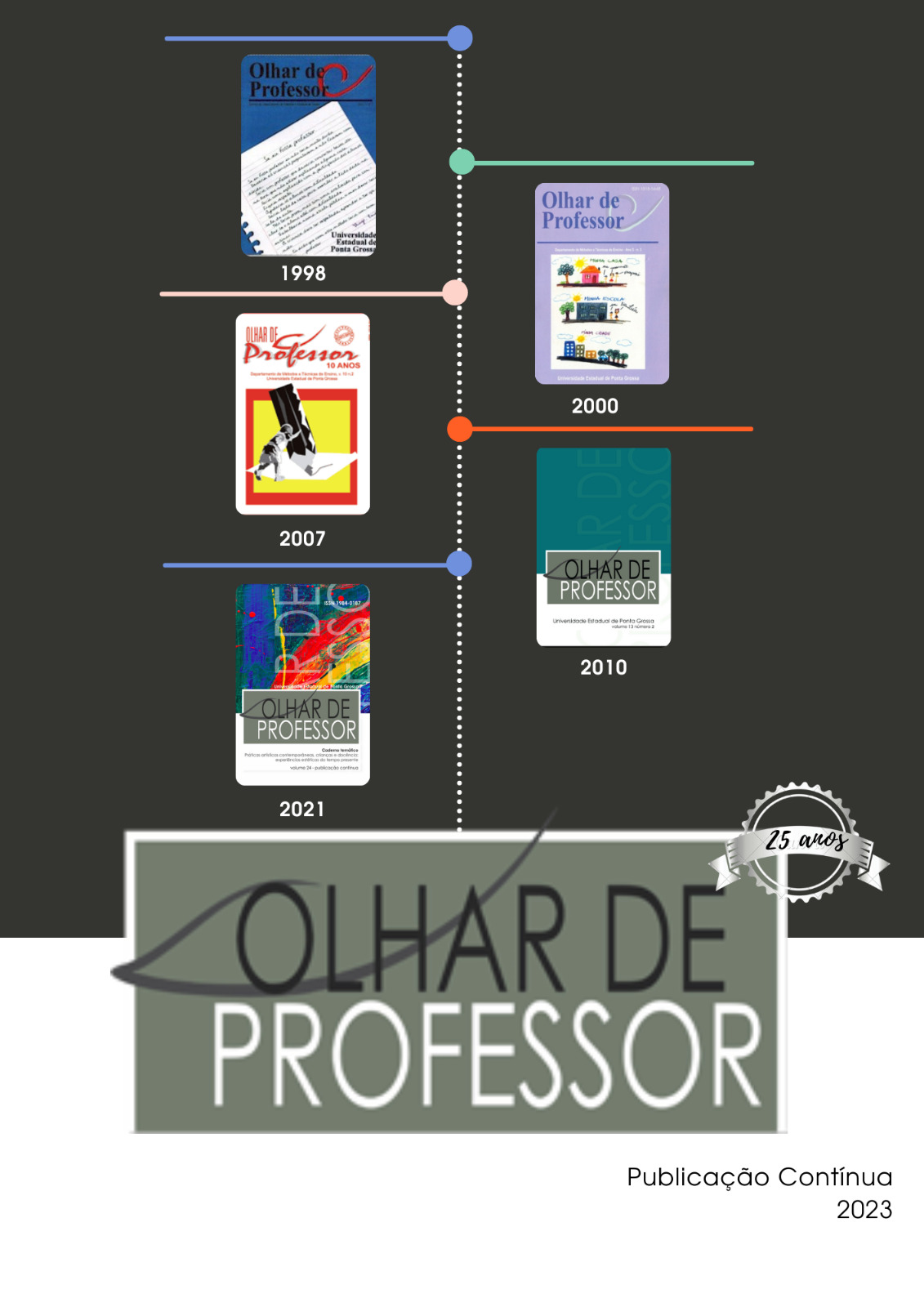ANPEd and intellectual production: a mapping of scientific production concerning indigenous school education
Main Article Content
Abstract
This article presents the results of an investigation conducted into intellectual production concerning indigenous school education at national events of the National Association for Postgraduation and Research in Education (ANPEd) in all its working groups in the period from 2007 to 2017, with a specific focus on an analysis of questions considered, methodological processes adopted and the institutions that developed these studies. Our premise was that school education is one of the principal concerns connected to the struggle of indigenous peoples to guarantee their rights, which were achieved with much difficulty in 1988 in the Federal Constitution. An examination of the material collected reveals that research into indigenous school education is still in its early stages, representing in the period from 2007 to 2017 merely 1% of the material relating to the debate around this thematic area.
Downloads
Article Details

This work is licensed under a Creative Commons Attribution 4.0 International License.
Authors who publish in this journal agree with the following terms:
a) Authors keep the copyrights and concede the right of its first publication to the magazine. The work piece must be simultaneously licensed on the Creative Commons Attribution License which allows the paper sharing, and preserves both the author identity and the right of first publication to this magazine.
b) Authors are authorized to assume additional contracts separately, to not-exclusively distribution of the paper version published in this magazine (e.g.: publish in institutional repository or as a book chapter), with the author identity recognition and its first publication in this magazine.
c) Authors are permitted and stimulated to publish and distribute their papers online (e.g.: in institutional repository or on their personal webpage), considering it can generate productive alterations, as well as increase the impact and the quotations of the published paper.
d) This journal provides public access to all its content, as this allows a greater visibility and reach of published articles and reviews. For more information on this approach, visit the Public Knowledge Project, a project that developed this system to improve the academic and public quality of the research, distributing OJS as well as other software to support the publication system of public access to academic sources.
e) The names and e-mail addresses on this site will be used exclusively for the purposes of the journal and are not available for other purposes.

This work is licensed under a Creative Commons Attribution 4.0 International License.
References
AMAZONAS (Estado). Plano Estadual de Educação – PEE/AM. Manaus, 2015.
BANIWA, G. Educação escolar indígena no século XXI: encantos e desencantos. 1. ed. Rio de Janeiro: Mórula, Laced, 2019.
BONIN, I. T. E por falar em povos indígenas...Uma conversa sobre práticas pedagógicas que ensinam sobre identidades e diferenças. 2007. Trabalho apresentado no GT 13. Anais da 30ª Reunião Anual da ANPEd. Caxambu - MG, outubro de 2007. Disponível em: http://30reuniao.anped.org.br/trabalhos/GT13-3330--Int.pdf. Acesso em: 20/07/2022.
BRASIL. Constituição (1988). Constituição da República Federativa do Brasil. Texto com as alterações adotadas pelas Emendas Constitucionais nos 1/ 92 a 64/2010 e pelas Emendas Constitucionais de Revisão nos 1 a 6/94. Brasília: Senado Federal, Subsecretaria de Edições Técnicas, 2010. 104 p.
BRASIL. Lei de Diretrizes e Bases da Educação Nacional. (Lei N° 9.394, de 20 de dezembro de 1996).
BRASIL. Plano Nacional de Educação (PNE). Lei Federal N.º 10.172, de 9/01/2001. Brasília: MEC, 2001c.
BRASIL. Lei Nº 11.645, de 10 de março de 2008. Estabelece as diretrizes e bases da educação nacional, para incluir no currículo oficial da rede de ensino a obrigatoriedade da temática “História e Cultura Afro-Brasileira e Indígena”.
BRASIL. Ministério da Educação e do Desporto. Secretaria de Educação Fundamental. Referencial Curricular Nacional para as Escolas Indígenas. Brasília, DF: MEC/SEF, 1998.
BRASIL. RESOLUÇÃO CEB Nº 3, de 10 de novembro de 1999. Fixa Diretrizes Nacionais para o funcionamento das escolas indígenas e dá outras providências. Brasília: MEC/SEB. 1999.
CASTRO, E. V. de. No Brasil, todo mundo é índio, exceto quem não é. Entrevista à equipe de edição, Povos Indígenas no Brasil, 2006b.
CARVALHO, L. O. R.; DUARTE, F. R.; MENEZES, A. H. N.; SOUZA, T. E. S. [et al.]. Metodologia científica: teoria e aplicação na educação a distância. Petrolina-PE, 2019.
FREYRE, G. Casa-grande & senzala: formação da família brasileira sob o regime da economia patriarcal. 48. ed. São Paulo: Global, 2003.
GOMES, G. C.; GOMES, N. C. A importância da educação escolar no processo de valorização da identidade indígena. 2013. Disponível em: https://educere.bruc.com.br/CD2013/pdf/14085_6360.pdf. Acesso em 19/06/2021.
IBGE – Instituto Brasileiro de Geografia e Estatística (2010) Indígenas. Disponível em: https://indigenas.ibge.gov.br/. Acesso em: 07/08/2022.
MEDEIROS, A. F. de. O papel da educação escolar indígena do povo Karitiana no contexto dos impactos provocados pelas hidrelétricas em Rondônia, Amazônia Brasileira. (Doutorado) - Desenvolvimento Regional e Meio Ambiente. Universidade Federalv de Rondônia. Porto Velho, RO: 2018.
NOGUEIRA, E. M. L. Currículo e diversidade cultural indígena no amazonas: representações da escola Tenharin em Humaitá e Manicoré. São Paulo: PUC, 2015.
PRODANOV, C. C.; FREITAS, E. C. de. Metodologia do trabalho científico: métodos e técnicas da pesquisa e do trabalho acadêmico. 2. ed. – Novo Hamburgo: Feevale, 2013.
SANTOS, L.. T. M; DONIZETI, A. (2011). Educação Escolar Indígena, matemática e cultura: a abordagem etnomatemática. Revista Latinoamericana de Etnomatemática. 21-39. Disponível em: https://www.revista.etnomatematica.org/index.php/RevLatEm/article/view/28. Acesso em: 20/01/2022.
SANTOS, J. N.; PINHEIRO, M. das G. S. P. Educação Escolar Indígena em Manaus (2005-2011). Manaus: Valer/Fapeam, 2016.
SECCHI, D. Política de educação escolar indígena: nos caminhos da autonomia. UFMT. 2005. Disponível em: www.anped.org.br/biblioteca/item/politica-de-educacao-escolar-indigena-nos-camihos-da-autonomia. Acesso em 20 jun. 2020.
SEVERINO, A. J. Metodologia do trabalho científico. 1. ed. -- São Paulo : Cortez, 2013. Disponível em: https://www.ufrb.edu.br/ccaab/images/AEPE/Divulga%C3%A7%C3%A3o/LIVROS/Metodologia_do_Trabalho_Cient%C3%ADfico_-_1%C2%AA_Edi%C3%A7%C3%A3o_-_Antonio_Joaquim_Severino_-_2014.pdf. Acesso em: 01/07/2022.
VINHA, M. Atividade física entre indígenas para civilizar e indicada para educar. 2007. Trabalho apresentado no GT 06. Anais da 30ª Reunião Anual da ANPEd. Caxambu - MG, outubro de 2007. Disponível em: http://30reuniao.anped.org.br/trabalhos/GT06-3715--Int.pdf. Acesso em: 20/07/2022.





